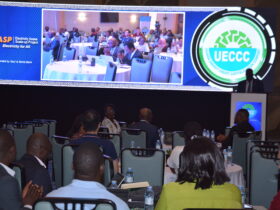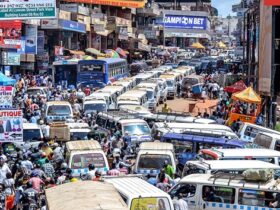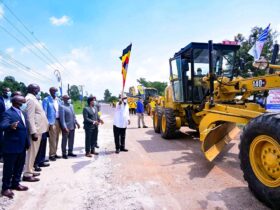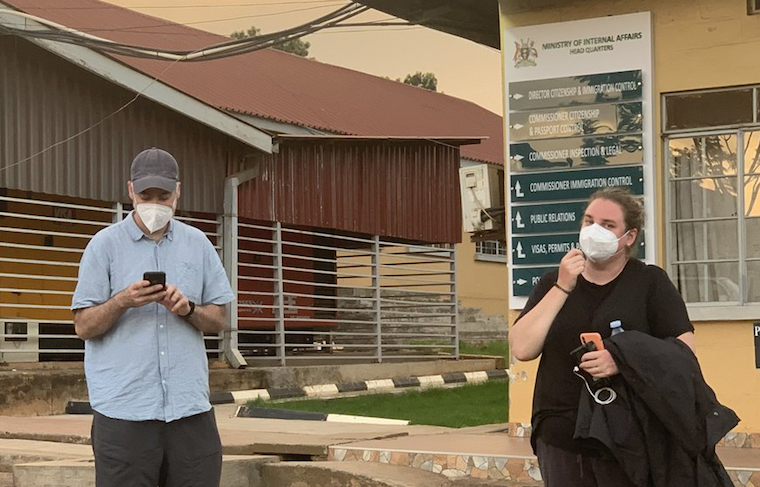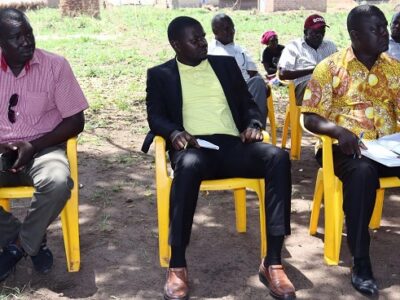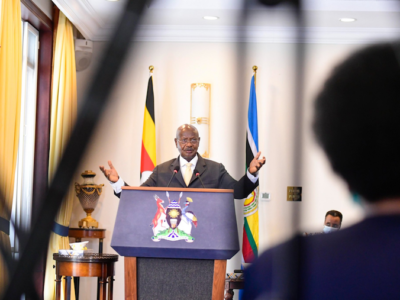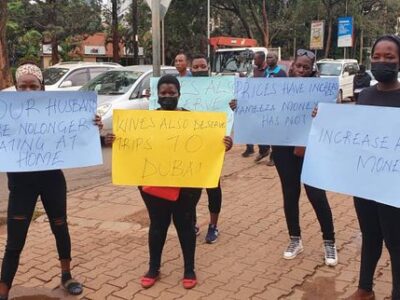The deportation happened about a month before the country’s elections. Opposition parties and election observers have expressed concerns the vote won’t be free or fair. Uganda is due to hold presidential and parliamentary elections on January 14.
Incumbent President Yoweri Museveni is seeking to extend his 34 year-rule — but has been accused of muzzling the media and has clamped down on political opponents.
“The expulsion of a foreign news crew in the early days of an election campaign that’s already been marred by government security forces opening re on opposition protests is extremely ominous,” said CBC News foreign correspondent Margaret Evans, who was one of three CBC News journalists deported.
Evans, producer Lily Martin and videographer Jean-François Bisson landed in the country on November 21 to do a series of reports from both rural and urban areas, mainly focusing on issues relating to the coronavirus pandemic.
“Before entering the country, we applied for — and were issued with — accreditation from the Media Council of Uganda,” Evans said, noting they also sought advice from the Ugandan High Commission in London on proper visa requirements prior to the trip.
“They advised that we enter Uganda on an ‘ordinary,’ or tourist, visa. This is a long-established practice for foreign journalists.”
Evans said ve government agents arrived at their hotel in Kampala.
“They said we were breaking the law by having arrived in the country on a tourist visa and then performing ‘business activities,’” Evans said.
“We, of course, said that made no sense given that we had openly applied for media credentials.” Hotel security intervened after the CBC News crew refused to go to an undisclosed address with the five officials, who also wanted to confiscate their passports.
Evans said she then went to her room to call and ask CBC’s London bureau manager to contact the Canadian High Commission in Nairobi — which is also responsible for Uganda.
“We agreed with the man who had identified himself as being with the police that we would present ourselves at the ministry of the Interior the next day,” Evans said.
The CBC News crew arrived at the ministry at 9 a.m. local time, along with Canada’s honorary vice-consul in Uganda. Evans said they were held for several hours before being told they were being deported. They were then allowed to return to their hotel under armed guard to pack before being driven to the airport in Entebbe for an overnight flight to Amsterdam, she said.
“The vice-consul engaged on our behalf, but it was pretty clear it had been decided the day before when they sent five people to our hotel,” Evans said.
A spokesperson for Global A airs Canada told CBC News that they are aware of the situation. “Consular officials were in contact with local authorities in Uganda to gather information, and Canadian officials provided consular services to the affected individuals,” spokesperson Angela Savard wrote in an email, adding that no further information could be disclosed due to Privacy Act provisions.
“Canada will continue to advocate for the protection of media freedom around the world.” A spokesperson from the Ugandan government communications department said on Twitter the government “reserves the right to admit foreign persons including journalists.”
The same spokesperson, Ofwono Opondo P’Odel, also sent a pair of statements to CBC News in response.
“Every visa, work permit and media accreditation have terms and conditions, which can be revoked by the Uganda authority if violation occurs,” he said in the first statement.
In a follow-up statement, P’Odel said the journalists “applied for a tourist visa, instead they were found working without work permit. Consequent they [were] removed and advised to apply for permit and can be allowed to return.” As stated by Evans, the trio had been advised to apply for tourist visas upon entering.
************
CBC


